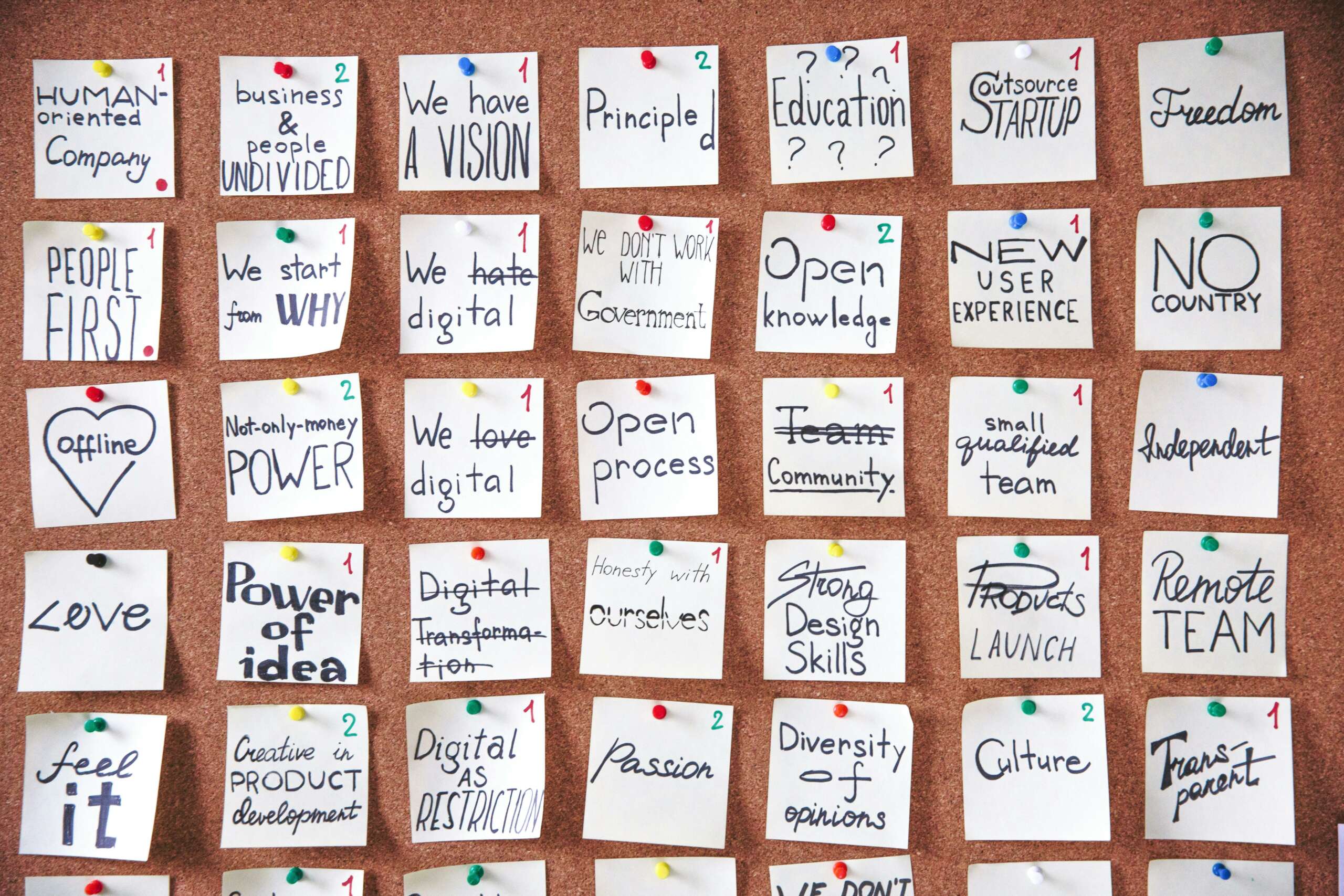1. Classroom and Behavioural Management
Learning to thrive in chaotic environments is difficult. As a result, teachers are challenged daily to create and maintain a positive and productive classroom environment that is conducive to learning. Each day can be quite challenging. In attempting to meet this challenge, teachers find themselves making common classroom behaviour management mistakes. This training is designed to introduce some of these common mistakes followed by suggestions for what we should do instead.
Training Objectives:
01
Describe what is meant by discipline.
02
Explain how assertive discipline is implemented.
03
Illustrate how to implement the reality therapy model.
04
Specify the love and logic approach.
05
Define the behavioural model and its characteristics.
06
Describe the misunderstandings of the behavioural model.
07
Specify the right to effective behavioural treatment and the right to effective education.
08
Describe the Ginott Model.
09
Characterize the Kounin Model.
10
Explain what character education is and describe two-character education programs.
11
Characterize the advantages and disadvantages of each model.
12
List concrete recommendations to help teachers reduce common problem behaviours.

2. Differentiated Instruction & Equal Opportunity Learning
Differentiated instruction introduces learning styles, multiple intelligences, and strategies to support learners in different learning styles and groups.
Training Objectives:
01
Identify learners’ needs and adapt lessons to different learning styles.
02
Understand and implement content, process or materials that help different learners learn.
03
Provide learners with equal opportunities to explore learning in their preferred style. environments.
04
What is “equal opportunity and diversity”?
05
Equal opportunity and diversity in the classroom
06
Equal opportunity and diversity in the teachers’ room
07
Tools for personal/professional development
3. Unlocking Dyslexia: Diagnosis & Management
Training Objectives:
Part I: Developing an Understanding of Dyslexia:
01
Understanding the basics of Dyslexia
02
Pinpointing what Dyslexia is not
03
Being alert to symptoms of Dyslexia at any age
04
Getting a diagnosis
Part II: Teaching Strategies:
01
Sprinting ahead with reading basics and practice
02
Playing with phonics
03
Putting memorizing, visualizing, and rhyming to good use
04
Taking advantage of multisensory methods
05
Handling everyday activities and difficulties
Part III: Children with Dyslexia: Feelings, Thoughts and Behaviours:
01
Emotional reaction
02
Follow-on effects on the child’s learning style
03
Responses to tasks and self-esteem
04
Intervention strategies
05
Teacher-student relationship
06
Developing the child’s emotional
07
Communication skills: maintaining integration and relationships with peers
08
Developing a structure for identifying
09
Strategy for handling errors
10
Homework technique for parents
Part VI: Educating Parents and Community:
01
Exploring your options for schools and programs
02
Investigating the Individualized Education Program
03
Taking part in your child’s treatment
04
Assisting Dyslexic teens
05
Heading off to college
06
Succeeding with Dyslexia in adulthood
Part V: Improving School and Dyslexia Friendly Classroom Practice:
01
Teaching and Learning Considerations, including marking and Individual Education Plans (IEP) targets
02
Children’s views on what makes a primary school dyslexia-friendly
03
Assessment considerations within the classroom
04
Some suggestions about dyslexia-friendly resources for a limited budget
05
Practical suggestions and tools relating to classroom practice

4. Active Learning: Constructivist Theory
This course is designed to help classroom teachers to become constructivist educators. This is a process that aims at involving learners in the doing of the learning process instead of being passive receivers. Active learning is also called brain-based instruction. Teachers will learn how the brain learns to help learners best obtain, process, retain, and apply the knowledge, skills, and attitude they learn via a variety of activities including problem solving, teamwork, pair-work, critical thinking. Active learning also requires appropriate “constructivism”, which refers to creating efficient learning environments through the implementation of adequate strategies.
Training Highlights:
01
Aligned with constructivist strategies and evolved from traditional philosophies.
02
Promoting research-based learning through investigation and authentic scholarly content.
03
Encouraging leadership skills of the students through self-development activities.
04
Creating a suitable atmosphere for collaborative learning to build knowledgeable learning communities.
05
Cultivating a dynamic environment through interdisciplinary learning and generating high-profile activities for an optimal learning experience.
06
Integrating accumulated knowledge to incur a rich structure of knowledge among the students.
5. Emotional Intelligences in Learning Environments
This training focuses on developing emotional intelligence (EQ) in both teachers and students. Educators will learn to recognize and manage their emotions while fostering a supportive environment that helps students cope with challenges and succeed academically and emotionally.
Training Highlights:
01
Creating a “relationship-centred” (student-centred) approach to education.
02
Providing a learning environment for student’s motivation in achieving the highest learning outcomes.
03
Helping students to cope better with transitions.
04
Tackling lower dropout rates from secondary school and university.
05
Guiding students for better career orientation along their journey to higher educational pursuals, as well as to achieve more emotional resilient and sustain healthier and happier mental state (e.g., by living with a purpose and connecting with the loved ones).
6. Project-Based Learning: The Finnish Model
Inspired by Finland’s world-renowned educational practices, this course introduces project-based learning (PBL) as a key teaching strategy. PBL encourages collaboration, communication, and real-world problem-solving skills. Educators will learn how to implement these techniques to deepen student engagement and understanding.
Training Highlights:
01
Based on empirical research and innovative teaching practices conducted by the trainer over 20 years of teaching
02
Promotes skill-based approach to teaching and learning.
03
Models effective way of combining skill and content objectives for teaching and learning.
04
Promotes collaborative learning and builds genuine student-centred classrooms.
05
Promotes building student-student, student-teacher relationships.
06
Based on empirical research and innovative teaching practices.
07
Encourages innovation in teaching practices.
08
Models how to implement Investigative Learning Process in PBL.
09
Tackles the idea of Process Orientation over Product Orientation.
10
Promotes skill-based approach to teaching and learning.
11
Models effective way of combining skill and content objectives for teaching and learning.
12
Promotes collaborative learning and building truly student-centred classroom.
13
Encourages innovation in teaching practices.

Why choose SILK GROUP ?
At SILK GROUP, we believe that education is not a fixed field of study that can be tied to a specific training model. We work hand in hand with several renowned institutions to provide top-notch training programs that are up-to-date and address educational challenges.
The training programs we offer include but are not limited to:
01
Leadership Skills in Schools
02
Empowering Educators
03
Differentiated Instruction & Equal Opportunity Learning
04
Building Child Protection Mechanisms
05
Investing in Multicultural Skills
06
Promoting Equity in Education
07
Preventing Bullying in Schools: Teacher Guide
08
Special Education and Equity
09
Qualitative Assessment & Data Analysis
10
Unpacking Teacher Performance Appraisals
11
Equal Opportunity Learning: Myth VS. Truth
12
Strategic Planning of Schools
13
Building P. D. Structures
14
Planning Accreditation & Recommendations Follow-up
15
Fostering Engagement through Play
16
Project-Based Learning: The Finnish Model
17
Professional Development & Overlapping Learning Communities
18
Mastering Quality Control via Data Analysis
19
Cross-Curricular Educational Planning
20
Active Learning: Constructivist Theory
21
Classroom & Behavioural Management
22
Teacher Performance Evaluation Tools
23
Building Strong Relationships with Students and Families
24
Checks for Understanding: Using Formative Assessments in the Classroom
25
Data-Driven Action Planning
26
Planning with Key Performance Indicators
27
Movement & Independent Learning
28
Foundations: Essential Skills for New Teachers
29
Building Strong Relationships with Students and Families
30
Student-Centred Learning
At SILK GROUP, we believe that education is not a fixed field of study that can be tied to a specific training model. We work hand in hand with several renowned institutions to provide top-notch training programs that are up-to-date and address educational challenges.
The training programs we offer include but are not limited to:
01
Leadership Skills In Schools
02
Empowering Educators
03
Differentiated Instruction & Equal Opportunity Learning
04
Building Child Protection Mechanisms
05
Investing in Multicultural Skills
06
Promoting Equity in Education
07
Emotional Intelligences in Learning Environments
08
Special Education and Equity
09
Qualitative Assessment & Data Analysis
10
Investing in Common Core Competencies
11
Building Child Protection Mechanisms
12
Strategic Planning of Schools
13
Building P. D. Structures
14
Accreditation & Recommendations Follow-up
15
Fostering Engagement Through Play
16
Project-Based Learning: The Finnish Model
17
Professional Development & Overlapping Learning Communities
18
Mastering Quality Control via Data Analysis
19
Cross-Curricular Educational Planning
20
Active Learning: Constructivist Theory
21
Classroom & Behavioural Management
22
Teacher Performance Evaluation Tools
23
Building Strong Relationships with Students and Families
24
Checks for Understanding: Using Formative Assessments in the Classroom
25
Data-Driven Action Planning
26
Planning with Key Performance Indicators
27
Movement & Independent Learning
28
Foundations: Essential Skills for New Teachers
29
Building Strong Relationships with Students and Families
30
Student-Centred Learning
At SILK GROUP, we believe that education is not a fixed field of study that can be tied to a specific training model. We work hand in hand with several renowned institutions to provide top-notch training programs that are up-to-date and address educational challenges.
Leadership Skills in Schools
Empowering Educators
Differentiated Instruction & Equal Opportunity Learning
Building Child Protection Mechanisms
Investing in Multicultural Skills
Promoting Equity in Education
Preventing Bullying in Schools: Teacher Guide
Special Education and Equity
Qualitative Assessment & Data Analysis
Unpacking Teacher Performance Appraisals
Equal Opportunity Learning: Myth VS. Truth
Strategic Planning of Schools
Building P.D. Structures
Planning Accreditation & Recommendations Follow-up
Fostering Engagement through Play
Project-Based Learning: The Finnish Model
Professional Development & Overlapping Learning Communities
Mastering Quality Control via Data Analysis
Cross-Curricular Educational Planning
Active Learning: Constructivist Theory
Classroom & Behavioural Management
Teacher Performance Evaluation Tools
Building Strong Relationships with Students and Families
Checks for Understanding: Using Formative Assessments in the Classroom
Data-Driven Action Planning
Planning with Key Performance Indicators
Movement & Independent Learning
Foundations: Essential Skills for New Teachers
Building Strong Relationships with Students and Families


